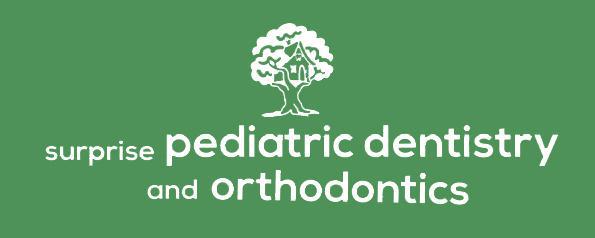Pediatric dentists are dental specialists who have the experience and training to provide specialized preventive, diagnostic, and treatment services for infants, children, and adolescents. They are able to help you maintain your child’s healthy smile from infancy into their teenage years. Some of the most common questions parents have about pediatric dentists are answered below.
What is different about a pediatric dentist?
Pediatric dentists have special training in caring for the teeth and gums of infants, children, and adolescents. They are familiar with the growth and development of young smiles and can provide preventive dental care, guidance on tooth-brushing and flossing techniques, and treatment for common childhood dental problems.
What should I expect at my child’s first visit to the pediatric dentist?
At your child’s first visit, the pediatric dentist will perform a comprehensive examination of your child’s teeth and gums. This exam will include a review of your child’s dental history and a discussion of any concerns you may have about your child’s oral health. The pediatric dentist may also recommend dental X-rays to help evaluate your child’s teeth and oral health.
What are common dental problems in children?
Common dental problems in children include tooth decay (cavities), gum disease, and enamel erosion. Tooth decay is the most common childhood dental problem, and can often be treated with a combination of good oral hygiene habits and dental sealants and fluoride treatments. Gum disease, which is caused by plaque buildup around the teeth and gums, can often be treated with a combination of brushing and flossing techniques, dental hygiene aids, and antibiotic mouthwash. Enamel erosion, which is the loss of tooth enamel caused by exposure to acidic foods and drinks, can often be treated with a combination of dietary changes and dental sealants.
What should I do if my child experiences a dental emergency?
If your child experiences a dental emergency, please call the pediatric dentist immediately. Dental emergencies can include toothaches, broken teeth, and injuries to the mouth and lips. Early treatment is essential for preventing further damage to the teeth and gums.
What are the most common dental procedures in pediatrics?
The most common dental procedures in pediatrics include tooth extractions, dental fillings, and root canals. Tooth extractions are often necessary when a child has a tooth that is severely decayed or infected. Dental fillings are used to treat cavities, and root canals are used to treat infection and inflammation of the tooth pulp.
Do Pediatric dentists use laughing gas?
Some pediatric dentists may use laughing gas (nitrous oxide) to help relax children during dental procedures. Laughing gas is a safe and effective sedative agent that is used in both adults and children. It is administered through a small mask that is placed over the child’s nose, and it begins to take effect within minutes. The gas is then discontinued when the procedure is completed.
What is happy juice at the dentist?
Happy juice is a nickname for nitrous oxide, which is a safe and effective sedative agent that is used in both adults and children. It is administered through a small mask that is placed over the child’s nose, and it begins to take effect within minutes. The gas is then discontinued when the procedure is completed.
Do pediatric dentists do braces?
Pediatric dentists do not typically do braces, but they can refer you to an orthodontist if your child needs braces. Orthodontics is the branch of dentistry that specializes in the diagnosis and treatment of crooked teeth and misaligned jaws.
Do they put toddlers to sleep for fillings?
No, pediatric dentists typically do not put toddlers to sleep for fillings. However, some pediatric dentists may use laughing gas (nitrous oxide) to help relax children during dental procedures. Laughing gas is a safe and effective sedative agent that is used in both adults and children. It is administered through a small mask that is placed over the child’s nose, and it begins to take effect within minutes. The gas is then discontinued when the procedure is completed.
How do they fix cavities in a 2 year old?
Cavities in a 2-year-old child can often be treated with a combination of good oral hygiene habits and dental sealants and fluoride treatments. Tooth decay is the most common childhood dental problem, and can often be treated with a combination of brushing and flossing techniques, dental hygiene aids, and antibiotic mouthwash.
Why are my toddler’s teeth rotting?
There can be several reasons why your toddler’s teeth are rotting, including poor oral hygiene habits, exposure to acidic foods and drinks, and gum disease. It is important to establish a good oral hygiene routine for your child, including brushing and flossing twice a day, and limit their exposure to acidic foods and drinks. If the tooth decay is severe, your pediatric dentist may recommend a dental sealant or fluoride treatment.
How many times should a child see a dentist?
The American Dental Association (ADA) recommends that children see a dentist every six months. This is typically enough time for the pediatric dentist to examine the child’s teeth and gums, clean any build-up of plaque or tartar, and provide preventive dental care.
Should a 4 year old go to the dentist?
Yes, the American Dental Association (ADA) recommends that children see a dentist every six months. This is typically enough time for the pediatric dentist to examine the child’s teeth and gums, clean any build-up of plaque or tartar, and provide preventive dental care. If your child has any dental problems, such as cavities or gum disease, your pediatric dentist may recommend more frequent visits.
How do I make my child more comfortable at the dentist?
There are several things you can do to make your child more comfortable at the dentist, including bringing them to visit before they have any dental work done, letting them choose a favorite toy or book to bring with them to the appointment, and talking to them about what will happen during their visit. You can also ask the pediatric dentist if they offer laughing gas (nitrous oxide) to help relax children during dental procedures. Laughing gas is a safe and effective sedative agent that is used in both adults and children. It is administered through a small mask that is placed over the child’s nose, and it begins to take effect within minutes. The gas is then discontinued when the procedure is completed.

